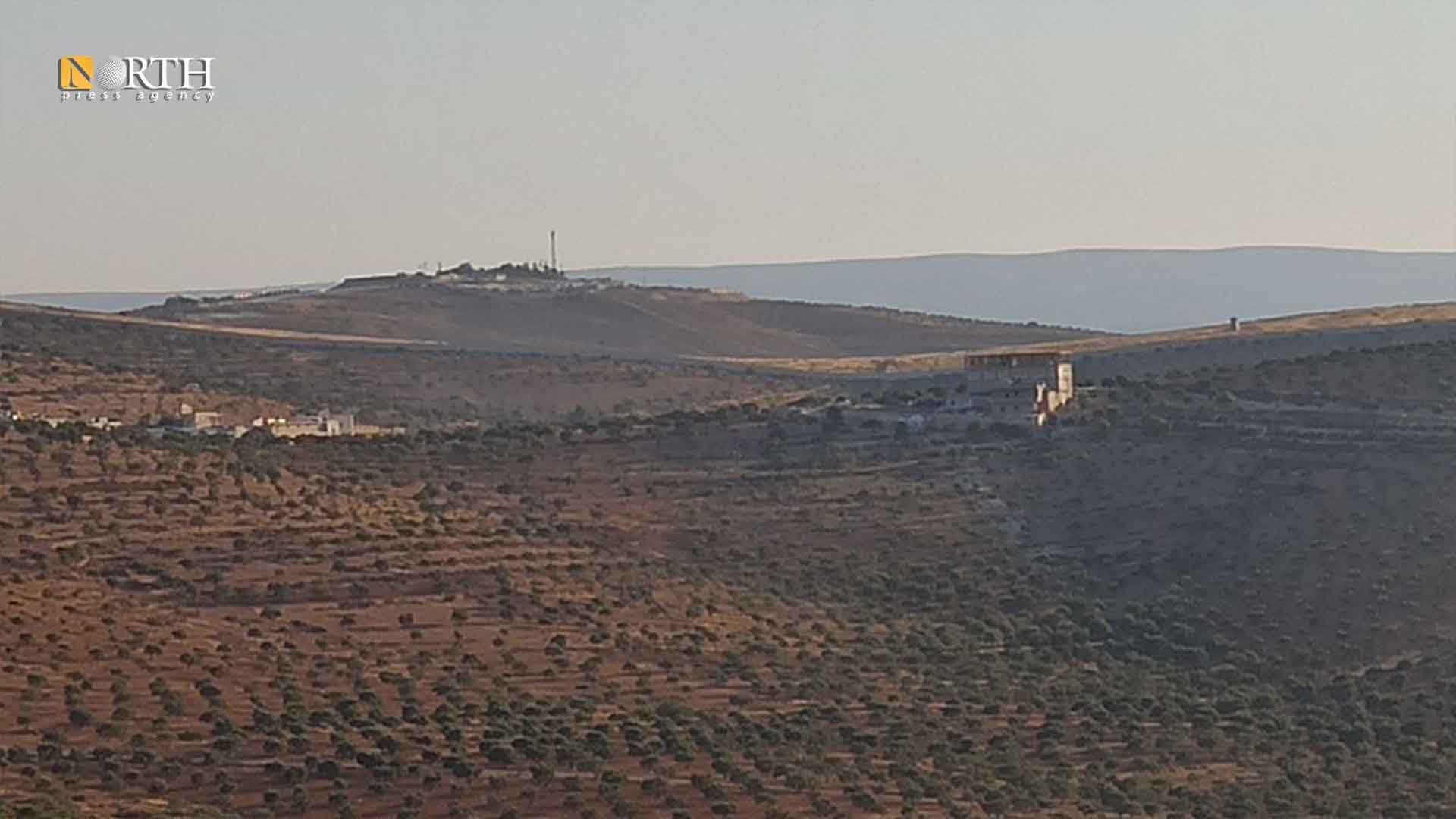IDLIB, Syria (North Press) – After the Turkish authorities deported the 35-year-old Mustafa Dali, a pseudonym for an IDP of Doma, in Rif Dimashq, back to Idlib, northwest Syria, although he has a Temporary Protection Identification document (Kimlik), he tried to cross the Syrian-Turkish border illegally.
Two months ago, the Turkish security arrested Dali, while returning from work at midnight, and kept him at a detention center for four days before signing a voluntary return paper to be deported back to Idlib, “without disclosing the charges and reasons or even being allowed to see my family.”
Dali has been living in the Turkish capital Ankara for nine years after fleeing with his family the Syrian war.
The Turkish authorities successively arrest Syrians for committing violations, according to the authorities, and then organize reports against them in order to deport them back to Syria under the pretext of not obtaining the required legal documents.
According to statements by officials of Ankara, Turkey houses about four million Syrians.
The number of the deported Syrians back to northern Syria during January 2021 has come up to 2,229, according to a statement by the management of Bab al-Hawa border crossing with Turkey in February.
In early November, the management released a statistic regarding the number of the deported Syrians saying 59 refugees were forcibly deported back to Syrian territory.
Risks on border
For the sake of family reunion, some deportees resort to smuggling again and subject themselves to the risk of being targeted by the bullets the Turkish border guards (gendarmerie).
Dali carried out several failed attempts and was hit and went through risks of being shot by the Turkish gendarmeries.
He expresses his fears and concern regarding his family left in Turkey that is witnessing poor livelihood conditions “because they were left with no breadwinner to look after them or secure their needs,” he said.
He pointed out that the gendarmeries, on purpose, fire at people, who tried to cross into Turkey, hit and torture them while arresting them for long hours.
Since early 2021, the number of Syrians killed by the Turkish soldiers’ bullets has rose to 513 including 96 under 18 and 67 women, according to statistics by Violations Documentation Center in Northern Syria (VDC-NSY).
Meanwhile, the number of those who were wounded via either bullets or during attacks has come up to 1,098 people who were targeted by the Turkish gendarmeries, or residents of Syrian border villages and towns.
On December 7, a civilian was deadly shot by the Turkish border guards (gendarmerie), while trying to cross into Turkish territory, northwest of Idlib.
At the beginning of November, two civilians were killed by the Turkish border guards while trying to cross the Syrian-Turkish border, north of Idlib, and a few days earlier, another civilian was killed in a similar way.
Forced to sign
In order to deport the Syrians, the Turkish authorities fabricate violations and problems against them that “do not rise to the level of making a decision to deport to areas that may not be safe for Syrians, even if they are in Idlib and its countryside,” Qays al-Hassan, an activist concerned about Syrian issues in Turkey, said.
In October, the Turkish Ministry of Interior arrested Syrians and threatened to deport others on charges of “inciting people to hatred and humiliation,” following a video that was posted on social media in which a Turkish man in Istanbul complaining he “could not afford to buy bananas”, while Syrians could afford “kilograms of bananas.”
After two months arriving in Turkey, the Turkish authorities deported Ra’ed al-Adel, an IDP of Ma’arat al-Nu’man, south of Idlib, and his family while he was trying to obtain a Kimlik.
The Turkish security members arrested him at an office for obtaining the Kimlik in Istanbul under the pretext that he had entered Turkey illegally, according to al-Adel, who is residing in Dana town, north of Idlib.
He added that the Turkish security members kept him for 24 hours at a refugee deportation center, where dozens of Syrians were kept, and then he was forced to sign on a volunteer return document to be deported back to Idlib.
After failing to return to Turkey again, he summoned his family to return to Idlib, but he witnessed a big lose especially when first he crossed into Turkey with his family and paid $4,000 to smugglers.
Deportation concern
The 38-year-old Mustafa al-Hammadeh, a pseudonym for an IDP of the northern countryside of Hama, paid $2,000 to a smuggler in order to rejoin his family in Istanbul after being deported back to Idlib in mid-September.
The Turkish security members arrested al-Hammadeh, while he was on his way to visit a relative in İzmir, because he did not obtain travel permit and he was deported then.
Syrians residing in Turkey face difficulty when transferring the Kimlik registry from one city to another and in obtaining a travel permit.
On November 25, the General Directorate of Migration Management in Turkey set a number of conditions related to the transfer of the Kimilk registry for Syrians residing in Turkey.
“Syrians who want to transfer the Kimlik from one state to another have to follow some instructions and conditions and they cannot complete the transfer in the event they are not available in full,” the decision read.
The conditions include a work permit issued by the state they want to move to provided that it is in force.
Unification of families and their children under 18 are not achieved unless they obtain a Turkish family book in addition to other conditions related to the transfer of university students and labor.
The imposed conditions raised rage among Syrian refugees. Sumayya Muhammad, a Syrian refugee residing in Turkey, told North Press at the time, “Syrians should bury themselves in order to get rid of these imposed restrictions.”
“Syrians’ dignity in Turkey is degraded since no laws protect them or preserve their rights and they always fear the forced deportation,” al-Hammadeh noted.

